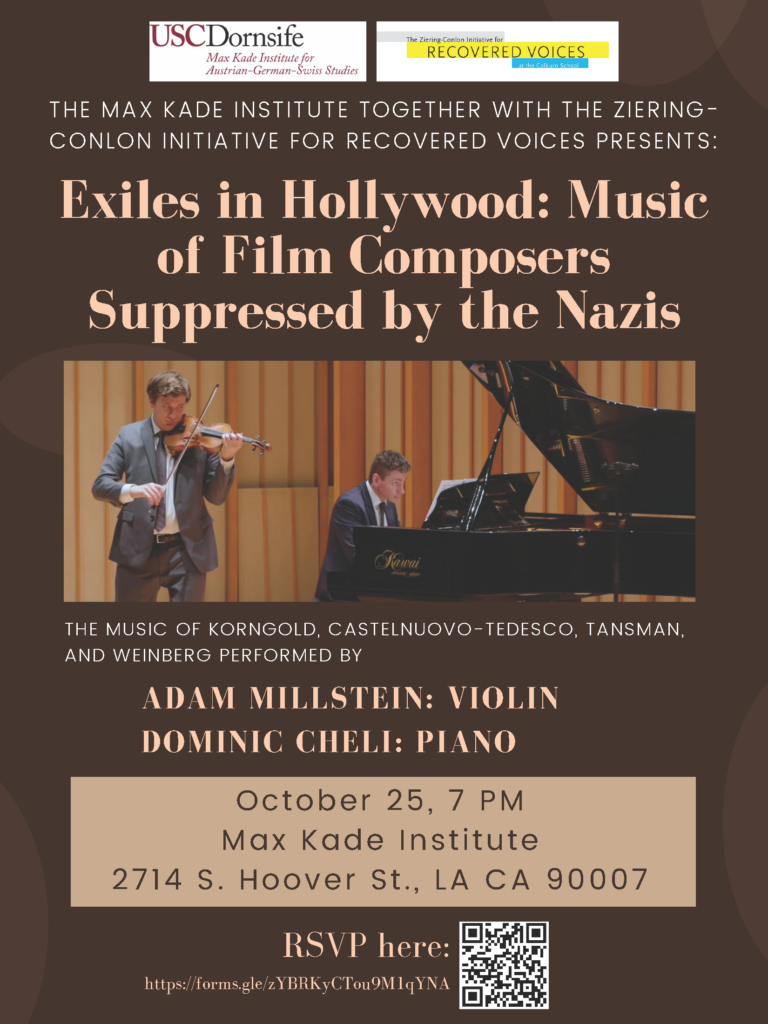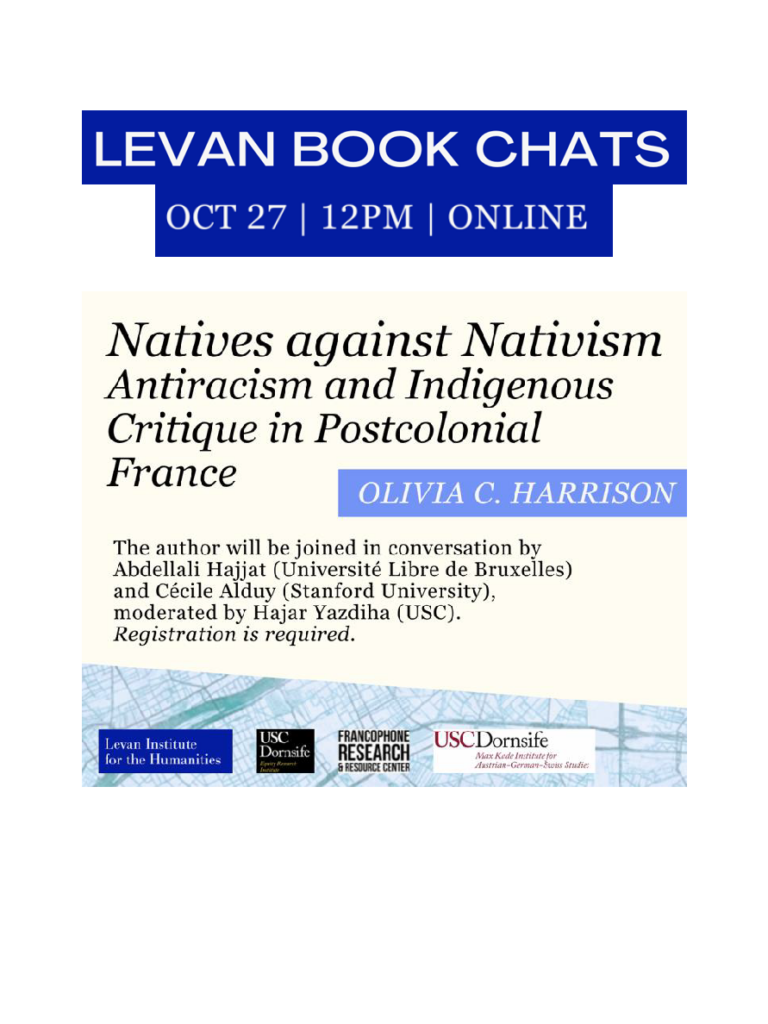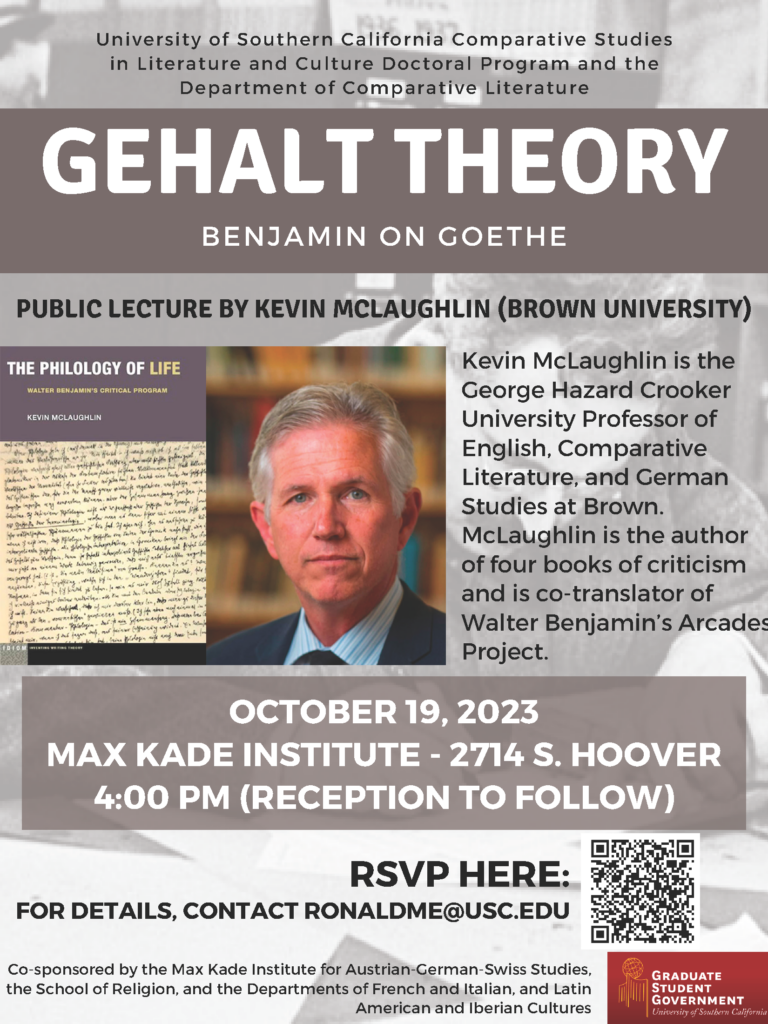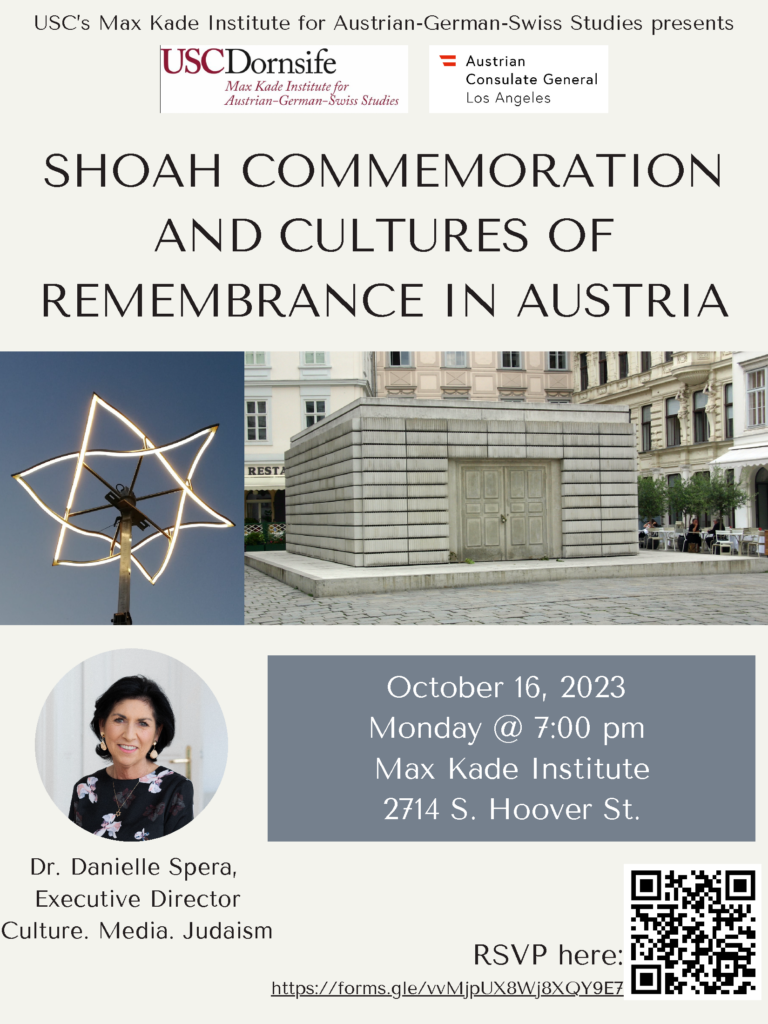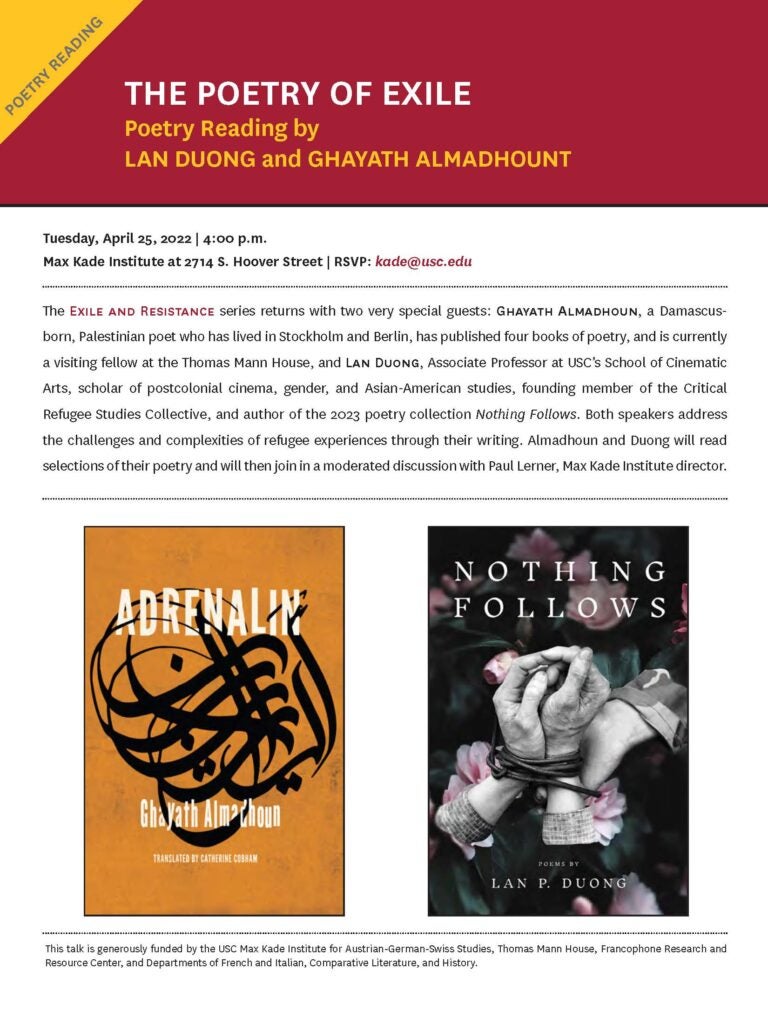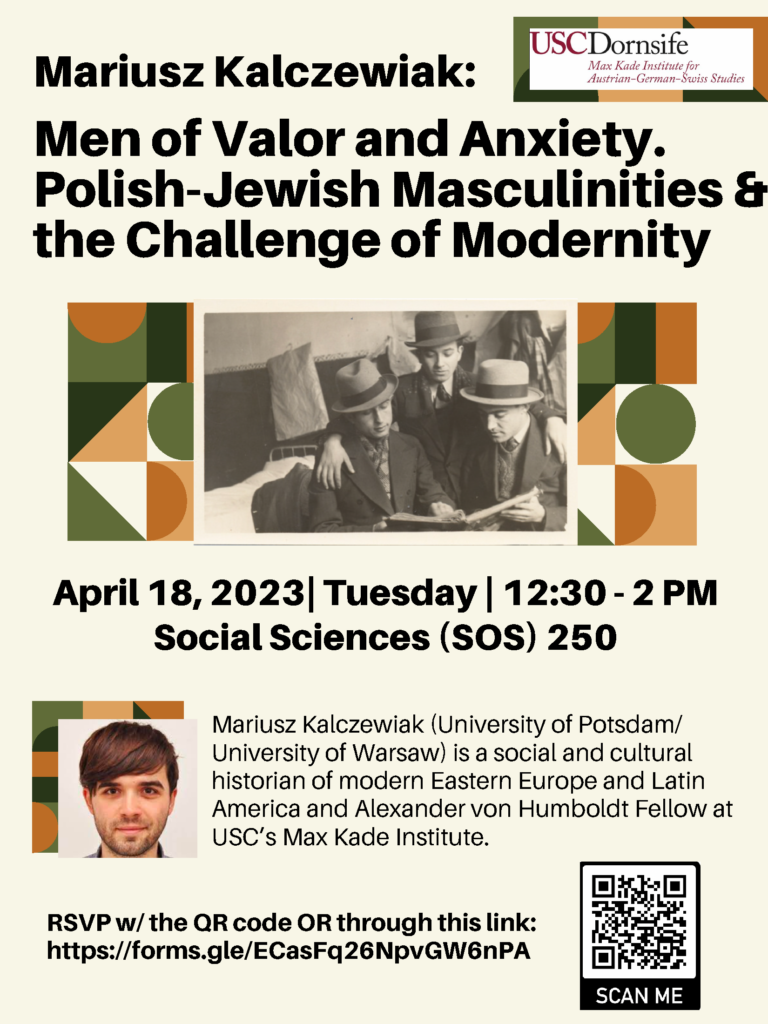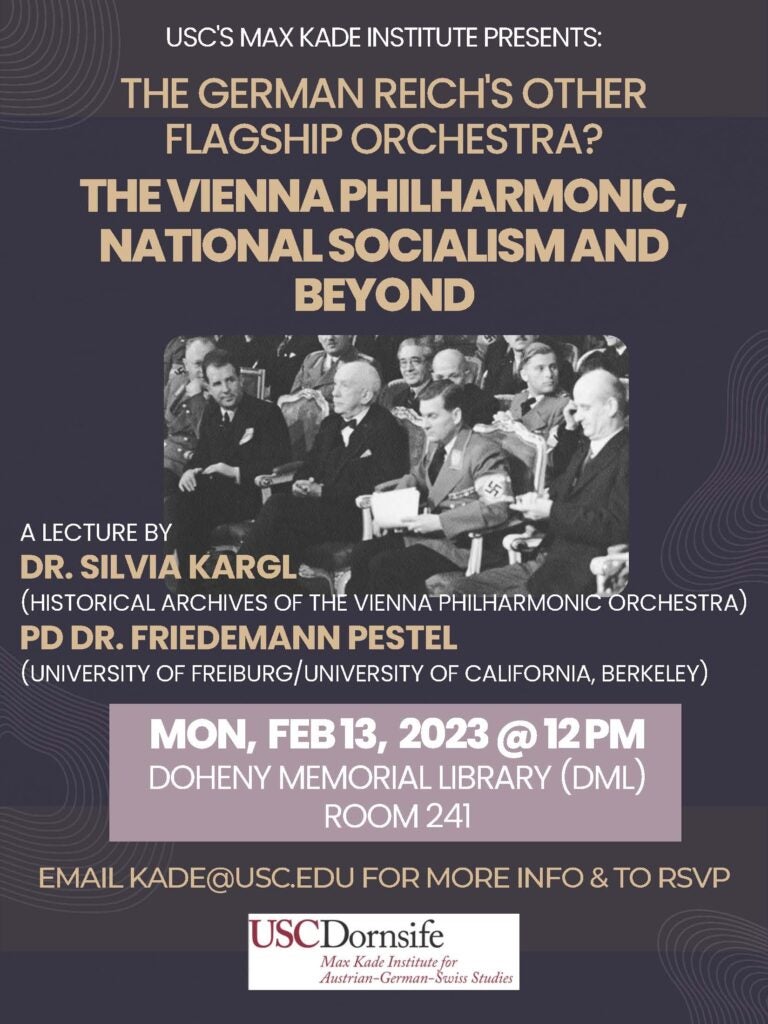The music of Korngold, Castelnuovo-Tedesco, Tansman, and Weinberg performed by
Adam Millstein: Violin
Dominic Cheli: Piano
Date: 25 October 2023 at 7:00 pm
Location: Max Kade Institute, 2714 S. Hoover Street
(Parking next to the building)
RSVP: see QR code on the flyer or email kade@usc.edu
Levan Book Chat with Olivia C. Harrison.
Date: Friday 27 October 2023 at 12:00 pm (online)
Registration is required.
The author will be joined in conversation by Abdellali Hajjat and Cecile Alduy, moderated by Hajar Yazdiha.
A lecture by Kevin McLaughlin (Brown University)
Date: 19 October 2023 at 4:00 pm
Location: Max Kade Institute, 2714 S. Hoover Street
(Parking next to the building)
Reception to follow
RSVP: see QR code on the flyer
For details, please contact ronaldme@usc.edu
A lecture by Dr. Danielle Spera, Executive Director Culture, Media, Judaism
Date: Monday 16 October 2023 at 7:00 pm
Location: Max Kade Institute, 2714 S. Hoover Street
Reception to follow
RSVP: see QR code on the flyer or email kade@usc.edu
Concrete Dreams: Urban Infrastructure and the Regulation of Human Behavior in the Global Twentieth Century
Date: Monday 15 May 2023
Jan Hansen, Katherine Zubovich, Paul Lerner, Andrew Demshuk, Brigitte Le Normand, Ognjen Kojanic, Juliana Kei, Oliver Sukrow, Anna-Christine Grant, Laura Isabel Serna, Christoph Schimkowsky, Tambet Muide, Andreas Greiner.
Panel 1: Socialist and Post-Socialist Landscape and Environment
Panel 2: Urban Planning, Rural Retreats, and Behavior Regulation
Panel 3: Urban Flow: Mobility, Consumption, and Lived Experience
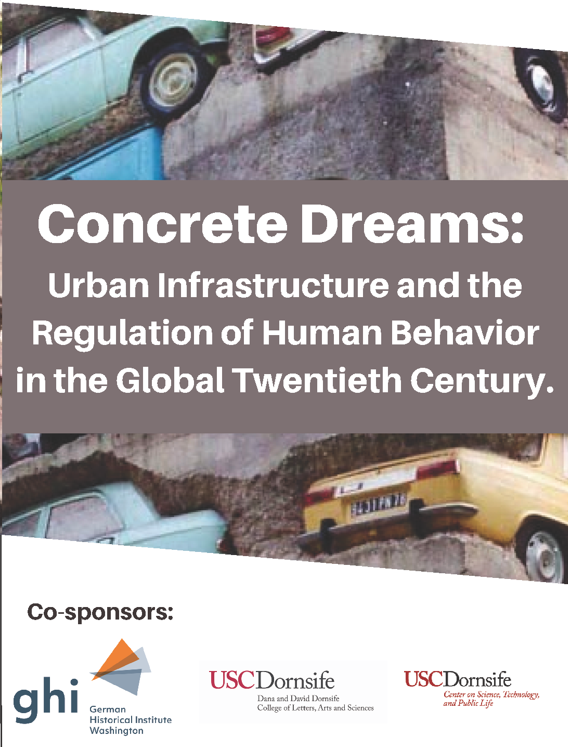
Poetry Reading by Lan Duong and Ghayath Almadhoun
Date: Tuesday 25 April 2023 at 4:00 pm
Location: Max Kade Institute at 2714 S. Hoover Street
Please rsvp to kade@usc.edu
The century stretching from the end of World War I to the present has seen an explosion in mobility and migration. The post-World War I order—persistent outbreaks of violence, and shifting European and Middle Eastern borders and boundaries—created what Hannah Arendt called “the problem of the stateless people.” The rise of the Nazis and other fascist movements in the 1930s led to a groundswell of emigrants and exiles, and both the Nazis’ genocidal war and post-World War II upheavals and persecutions further exacerbated the crises. In the past decade, the number of forcibly displaced persons has exceeded those of the years around World War II. If the European migrant crisis has served as the main sounding board for current discourses around migration, it is far from the only epicenter of global migration.
What can the history of forced displacement teach us about the current moment? How, in turn, does a history of the present alter our understanding of the past? And given the persistence of the problem of statelessness, is “crisis” the best framework to speak of migrants and refugees? Indeed the multidirectional patterns of so-called economic migration, too, intersect with the histories of imperialism, nationalism, and fascism in often-unpredictable ways, putting pressure on prevailing notions of “forced” versus “voluntary” displacement.
With a broad historical and geographic lens, the Exile and Resistance lecture series examines the overlapping trajectories of exile, migration, and statelessness over the last century, shedding light on experiences and representations of displacement, loss, and persecution and highlighting sites of political and cultural resistance.
Date: 18 April 2023 at 12:30 pm
Location: Social Sciences Bldg. (SOS) 250
A reading and conversation with award-winning translator Ross Benjamin.
Moderated by Institute Director Paul Lerner.
Date: Tuesday 21 February 2023 at 12:30 pm
Location: Doheny Memorial Library, DML 240
3550 Trousdale Pkwy.
(University Park Campus)
RSVP: kade@usc.edu
The German Reich’s other flagship orchestra?
The Vienna Philharmonic, National Socialism and Beyond.
Date: Mon 13 February 2023 at 12:00 pm
Location: Doheny Memorial Library, DML 240
3550 Trousdale Pkwy.
(University Park Campus)
